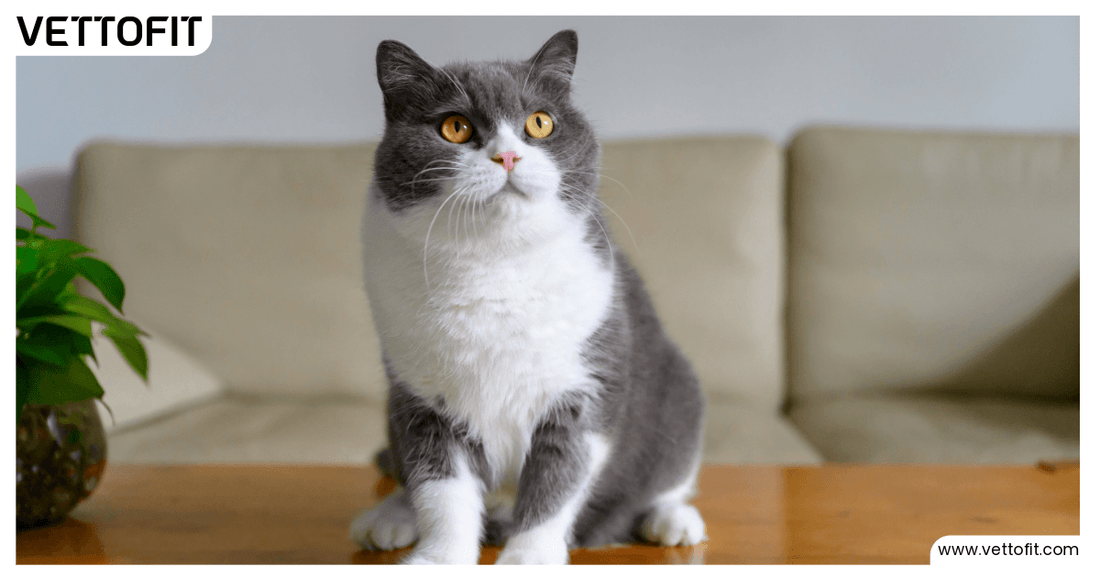
What to Feed a Cat with a Sensitive Stomach? | Vettofit Guide
Share
Dealing with a cat with a sensitive stomach can be stressful for pet parents. Frequent episodes of vomiting, diarrhea or lack of appetite signal discomfort that requires attention. But don’t worry, understanding dietary adjustments can significantly improve your cat’s health and quality of life.
Here's a guide on what and how to feed your sensitive-stomach feline.
Signs Your Cat Has a Sensitive Stomach
It's crucial to identify if your cat truly has a sensitive stomach. Watch out for these common indicators:
- Frequent vomiting or regurgitation
- Recurring diarrhea or loose stools
- Excessive gas or bloating
- Sudden loss of appetite or picky eating habits
If these signs persist, it’s essential to consult your vet to rule out serious health issues like allergies, parasites or gastrointestinal disorders.
Choosing the Right Food for Your Cat
Picking the right diet makes all the difference. Here's what you should consider:
1. Limited Ingredient Diets (LID)
Limited ingredient cat foods contain fewer ingredients. This helps minimize the risk of food allergies or intolerances.
- Look for formulas with single protein sources like chicken, fish or turkey.
- Avoid food containing artificial preservatives, colors or flavorings.
2. High-Quality, Easily Digestible Proteins
Quality proteins support gentle digestion:
- Opt for lean meats like chicken or turkey.
- Stay away from highly processed meats.
3. Grain-Free Diets
Some cats react negatively to grains such as wheat or corn:
- Grain-free cat foods might help ease digestion.
- However, always discuss this switch with your vet first, as grain-free isn’t always the solution.
Feeding Tips for Sensitive Stomach Cats
Here are actionable strategies to manage feeding effectively:
- Introduce New Food Gradually: Rapid dietary changes can upset your cat’s digestive system. Gradually mix new food with old, over 7-10 days.
- Small, Frequent Meals: Offer smaller portions multiple times a day instead of large meals.
- Hydration Matters: Ensure plenty of fresh water is available. Consider wet foods as they naturally support hydration.
- Avoid Table Scraps and Treats: Stick strictly to cat-specific foods, avoiding human snacks or treats.
Recommended Ingredients for Sensitive Cats
Including these ingredients can positively impact your cat’s digestion:
- Pumpkin: High fiber content helps ease constipation and diarrhea.
- Probiotics and Prebiotics: Promote a healthy gut microbiome.
- Omega-3 Fatty Acids: Reduce inflammation and improve gut health.
Foods to Avoid
Certain ingredients may exacerbate stomach sensitivity:
- Dairy products (most adult cats are lactose intolerant)
- High-fat foods
- Artificial additives and fillers like soy or corn
Is Homemade Cat Food a Good Option?
Homemade diets can provide control over ingredients but require meticulous planning:
- Consult your vet or a pet nutritionist for balanced recipes.
- Be vigilant about nutrient balance to avoid deficiencies.
Ask yourself, is cooking your cat’s meals sustainable long-term?
Thought-Provoking Question
Have you noticed a specific food triggering your cat’s digestive problems?
Keep a food diary to track patterns and share these insights with your vet.
Feeding Checklist
- Select foods with clear, minimal ingredients.
- Include gut-friendly ingredients like probiotics and pumpkin.
- Gradually transition new foods.
- Monitor your cat's reaction closely.
At Vettofit, we understand your concerns deeply. Proper diet management significantly enhances your cat’s comfort and wellbeing. Remember, patience and consistency are key.
